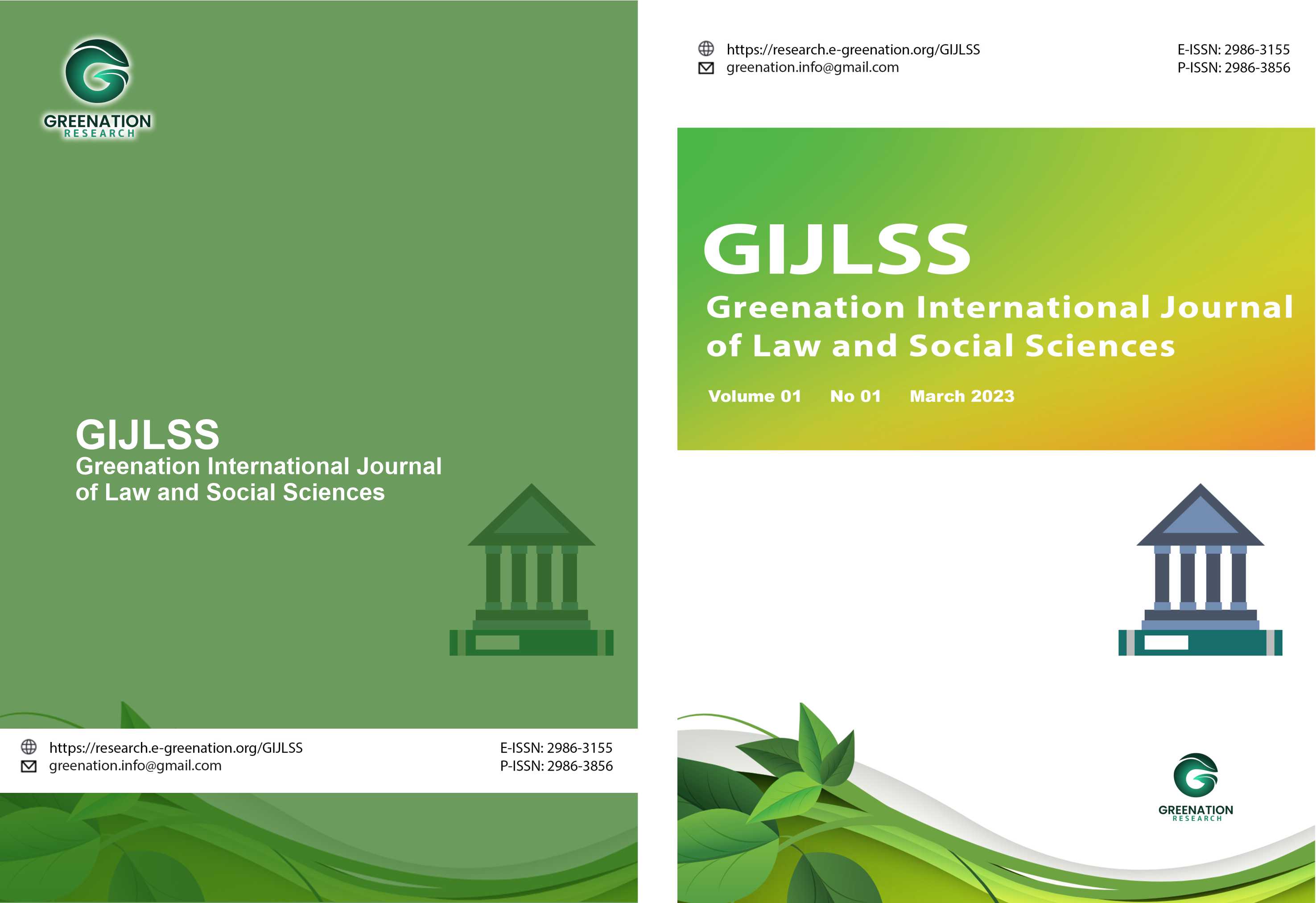Analysis of Salt Policy Regulations and Their Impact on Salt Farmers’ Welfare: Achieving a Balance Between Regulation and Protection
DOI:
https://doi.org/10.38035/gijlss.v3i2.512Keywords:
Indonesia’s Salt Potential, Capital and Technology in Salt Production, Government Policy and Farmer Welfare, Salt CooperativeAbstract
Indonesia possesses considerable potential for salt production, particularly in Cirebon Regency, West Java, given its extensive maritime territory. However, challenges such as low productivity, poor quality, and limited access to technology and capital impede the development of the local salt industry. The preponderance of salt farmers' reliance on conventional methodologies engenders an incongruity between domestic market demand and production capacity. The present study undertakes a rigorous examination of the extant regulations pertaining to salt policies and their impact on farmers' welfare in Waruduwur Village, Mundu Sub-district. The present study employs a qualitative case study approach to investigate the role of government policies in overcoming capital and technological barriers, including the application of geomembrane technology. It is hypothesized that the findings will provide recommendations for balancing effective regulation and farmer protection. The implementation of these recommendations is expected to improve farmers' welfare, reduce import dependency, and enhance the competitiveness of local salt in the national market.
References
Adnyani, Ni Ketut Sari, Ni Made Wiratini, I Made Agus Wirawan, I Made Dwi Cahya Prayogi Putra, and Ni Kadek Mira Pratiwi. “Empowerment of Segara Baruna Tianyar Partners in Sea Salt Management for Business Improvement and Welfare.” Indonesian Journal of Community Service 6, No. 1.1 (2024): 268–77.
Hadiyono, Venatius. “Indonesia in Responding to the Concept of a Welfare State and Its Challenges.” Journal of Law, Politics and Power 1 (2020).
Kurniawan, Tikkyrino, and Ahmad Azizi. “The Impact of Import Policies and Institutions on the Performance of the National Salt Industry.” Journal of Maritime and Fisheries Socio-Economic Policy 3, No. 1 (2013): 1–13.
Pangestu, Rizky Gelar. “Legal Protection for Smallholder Salt Farmers Linked to the Enactment of Government Regulation Number 9 of 2018 Concerning Procedures for Import Control for Fishery and Salt Commodities as Raw Materials and Industrial Auxiliary Materials.” Dialogia Iurid. J. Law. Business and Investment 10, No. November (2018): 77–95.
Safrida, Safrida. “The Impact of Salt Imports on Domestic Salt Production and Prices in Indonesia.” Agricultural Business Journal 7, No. 1 (2021): 25–36.
Ula, Mutammimul, T Multazam, Muhammad Hatta, Ezwarsyah Ezwarsyah, and Fakruddin Ahmad Nasution. “Pkm Mentoring Monitoring of Seawater Quality Measurement Using Baumemeter in Dewantara District.” Malikussaleh Mengabdi Journal 3, No. 1 (2024): 130–37.
Wiraningtyas, Agrippina, Ahmad Sandi, Sowanto Sowanto, and Ruslan Ruslan. “Improving the Quality of Salt to Industrial Salt in Sanolo Village, Bolo District, Bima Regency.” Jurnal Karya Abdi Masyarakat 1, No. 2 (2017): 138–45.
Bps. Cirebon Regency in Figures , 2021.“Indonesia Salt Statistics 2020 - National Statistics Report, 2020.” Jakarta, 2020.
Dadang. Position and Function of DPRD Recommendations in the Implementation of Authority and Licensing . Banyumas: Cv. Pena Persada, 2020.
Ambari, M. “Rising From the Downturn, Indonesia Targets Salt Self-Sufficiency in 2029. What is the Strategy?” https://Www.Mongabay.Co.Id/2017/08/29/Bangkit-Dari-Keterpurukan-Indonesia-Targetkan-Swasembada-Garam-Pada-2019-bagaimana-Strateginya/>Accessed on January 28, 2025, 2017.
Ministry of Maritime Affairs and Fisheries. “2021 Ministry of Marine Affairs and Fisheries Performance Report.” Jakarta, 2021. “Indonesian Fisheries Statistics 2021.” Jakarta, 2021.
United Nations. United Nations Convention On The Law Of The Sea . Montego Bay: United Nations, 1982.
Law No. 7 of 2016 concerning the Protection and Empowerment of Fishermen, Fish Farmers, and Salt Farmers (2016).
Rohman, Fathnur. (2024, September 18). Cirebon Dkpp increases the capacity of salt farmers through the formation of cooperatives. jabar.antaranews.com. https://jabar.antaranews.com/amp/berita/544183/dkpp-cirebon-tingkatkan-kapasitas-petani-garam-hingga-pembentukan-koperasi
Downloads
Published
How to Cite
Issue
Section
License
Copyright (c) 2025 Fara Winda, Dea Putri Utami, Jessica Puspa Puspa, Alip Rahman, Triana Justitia Mahardeka

This work is licensed under a Creative Commons Attribution 4.0 International License.
Copyright :
Authors who publish their manuscripts in this journal agree to the following conditions:
- Copyright in each article belongs to the author.
- The author acknowledges that the Greenation International Journal of Law and Social Sciences (GIJLSS) has the right to be the first to publish under a Creative Commons Attribution 4.0 International license (Attribution 4.0 International CC BY 4.0).
- Authors can submit articles separately, arrange the non-exclusive distribution of manuscripts that have been published in this journal to other versions (for example, sent to the author's institutional repository, publication in a book, etc.), by acknowledging that the manuscript has been published for the first time at GIJLSS.























